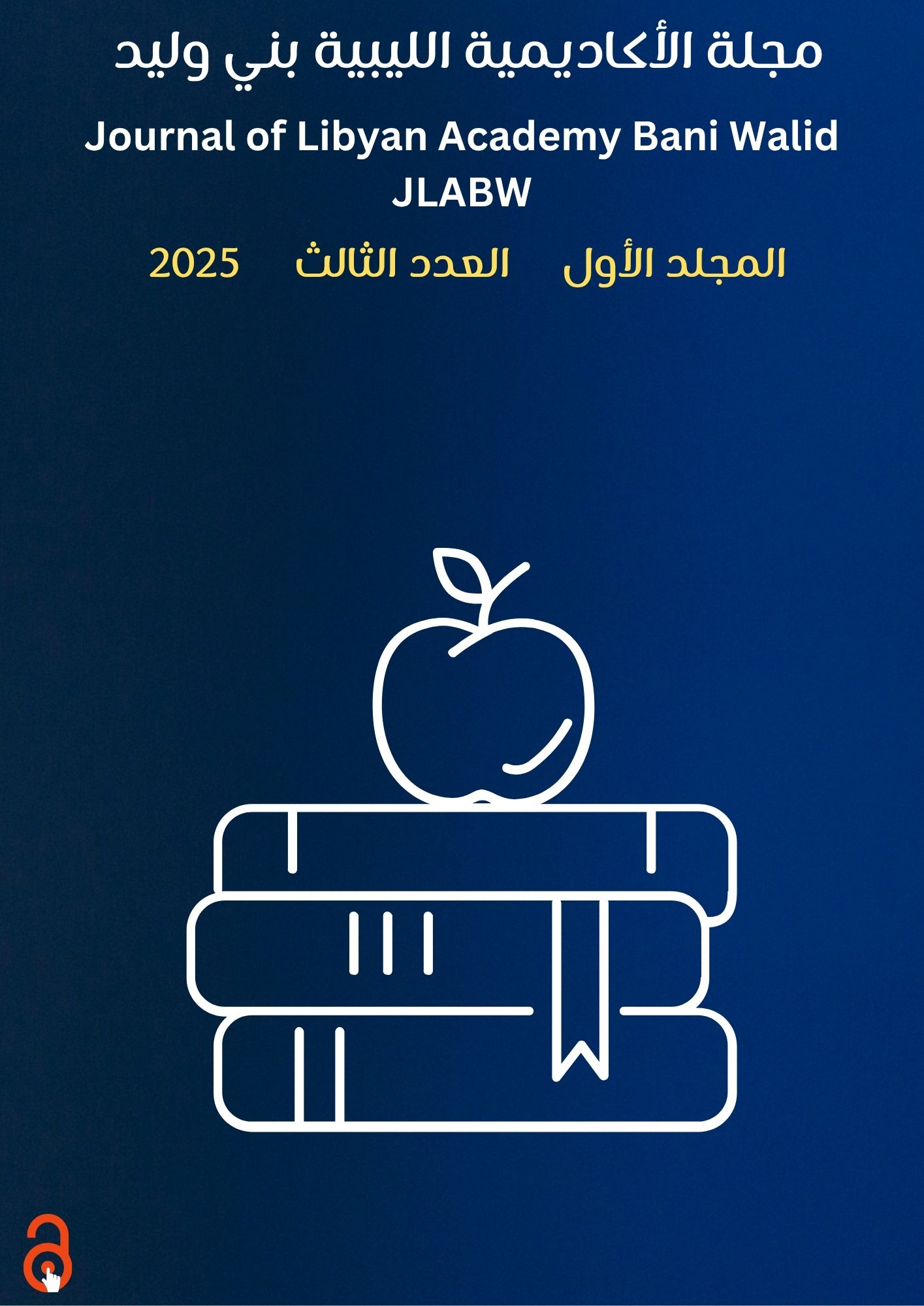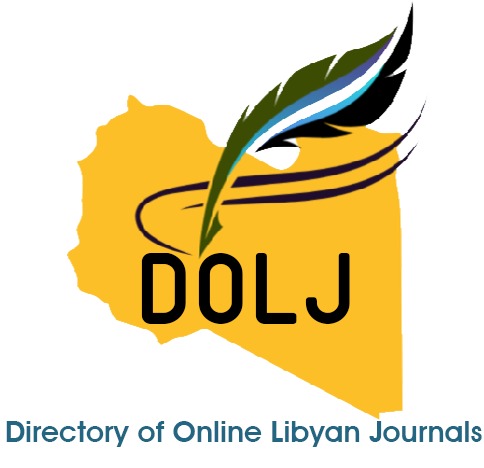The Impact of Using L1 Pedagogical Practices in English as Foreign Language (EFL) Classrooms: A Case Study of Emhimmed Ben Ebrahem Secondary School Teachers
DOI:
https://doi.org/10.61952/jlabw.v1i3.130Keywords:
L1 use, qualitative research, Libyan Secondary school, bilingual pedagogyAbstract
This qualitative study examines the influence of employing students' first language, Arabic, in English as a Foreign Language (EFL) classroom at Emhemmed Ben Ebrahem Secondary School. This study fills a gap in context-specific knowledge, especially in areas like Libya, which have not been studied enough, while there are still debates about the role of L1 in L2 learning. The research examines the impact of L1 on pedagogical practices, student engagement, and language learning outcomes from the viewpoints of teachers. Data were gathered via semi-structured interviews with five EFL teachers and non-participant classroom observations. Thematic analysis indicated that the strategic utilisation of L1 functioned as a scaffolding mechanism for elucidating intricate grammar and vocabulary, thereby enhancing comprehension and engagement; L1 alleviated anxiety, cultivating a conducive atmosphere for risk-taking in L2 communication; and excessive dependence on Arabic sometimes obstructed immersive language practice, underscoring the conflict between accessibility and target-language proficiency. Teachers were unsure about L1's usefulness, but they stressed the need to put English first because of institutional pressures. The study highlights the sociocultural significance of L1 in Libya's educational context, where minimal extracurricular engagement with English intensifies reliance on Arabic in the classroom. The implications indicate the necessity for organised guidelines on balanced L1 utilisation, professional development for educators, and policy reforms to align communicative objectives with localised pedagogical contexts. This research enhances global EFL discourse by promoting context-responsive strategies that utilise L1 as a support mechanism without hindering L2 acquisition.
References
Abdel Latif, M. M. (2018). EFL teachers’ code-switching in Egyptian classrooms: Patterns, perceptions, and dilemmas. Language Teaching Research, 22(2), 201–219. https://doi.org/10.1177/1362168816683565
Alshammari, M. M. (2015). The role of Arabic in Saudi EFL classrooms: Student and teacher attitudes. Journal of Multilingual and Multicultural Development, 36(6), 589–601. https://doi.org/10.1080/01434632.2014.995760
Antón, M., & DiCamilla, F. (1998). Socio-cognitive functions of L1 in collaborative L2 tasks. Modern Language Journal, 82(2), 233–247. https://doi.org/10.1111/j.1540-4781.1998.tb01195.x
Assalahi, H. (2020). EFL education in post-revolution Libya: Challenges and reforms. Arab Journal of Applied Linguistics, 5(1), 45–67.
Ben Hamad, N. (2020). Translanguaging in Tunisian EFL classrooms: Bridging gaps in mixed-proficiency settings. TESOL Quarterly, 54(3), 789–812. https://doi.org/10.1002/tesq.567
Benyahia, F., & Abdulkhaliq, L. (2015). Teacher training and English proficiency in Libyan secondary schools. TESOL Quarterly, 49(3), 543–567. https://doi.org/10.1002/tesq.238
Farhat, S. (2019). Language, identity, and resistance: Arabic in Libya’s post-revolution education. Journal of North African Studies, 24(5), 731–750. https://doi.org/10.1080/13629387.2018.1454645
García, O. (2009). Bilingual education in the 21st century: A global perspective. Wiley-Blackwell.
Hall, G., & Cook, G. (2012). Own-language use in language teaching and learning. Language Teaching, 45(3), 271–308. https://doi.org/10.1017/S0261444812000067
Krashen, S. D. (1982). Principles and practice in second language acquisition. Pergamon Press.
Orafi, S. (2013). Effective EFL teaching in Libyan secondary schools. Journal of Language Teaching and Research, 4(2), 226–234. https://doi.org/10.4304/jltr.4.2.226-234
Phillipson, R. (1992). Linguistic imperialism. Oxford University Press.
Shin, J. Y., Dixon, Q. L., & Choi, Y. (2019). An updated review on use of L1 in foreign language classrooms. Journal of Multilingual and Multicultural Development, 41(5), 406–419. https://doi.org/10.1080/01434632.2019.1684923
Vygotsky, L. S. (1978). Mind in society: The development of higher psychological processes. Harvard University Press.
Ennas Mawloud Faraj Alharam. (2025). Integrating Deep Learning Models into English Language Teaching Pedagogy: A Contextual Analysis of Opportunities and Challenges in Libyan Universities. Journal of Libyan Academy Bani Walid, 1(3), 01–18. Retrieved from https://journals.labjournal.ly/index.php/Jlabw/article/view/67
Salma HM Khalifa. (2025). Exploring Challenges of EFL Teachers in Professional Developments in Bani Walid Secondary Schools. Journal of Libyan Academy Bani Walid, 1(3), 358–366. Retrieved from https://journals.labjournal.ly/index.php/Jlabw/article/view/125
Masoudah Zaydan Ali ALnalouti. (2025). The Impact of Duolingo on Vocabulary Acquisition among English Department Students at Al-Jufra University. Journal of Libyan Academy Bani Walid, 1(2), 229–242. Retrieved from https://journals.labjournal.ly/index.php/Jlabw/article/view/124
Asma Issa Karwad. (2025). Challenges Students Encounter When Translating Idiomatic Expression. A Case Study of Faculty of Education Students. Journal of Libyan Academy Bani Walid, 1(2), 229–242. Retrieved from https://journals.labjournal.ly/index.php/Jlabw/article/view/43
Mostafa ali kulaib. (2025). The Effect of TBL (task based learning) on improving students’ oral communication skills. Journal of Libyan Academy Bani Walid, 1(3), 385–391. Retrieved from https://journals.labjournal.ly/index.php/Jlabw/article/view/129








